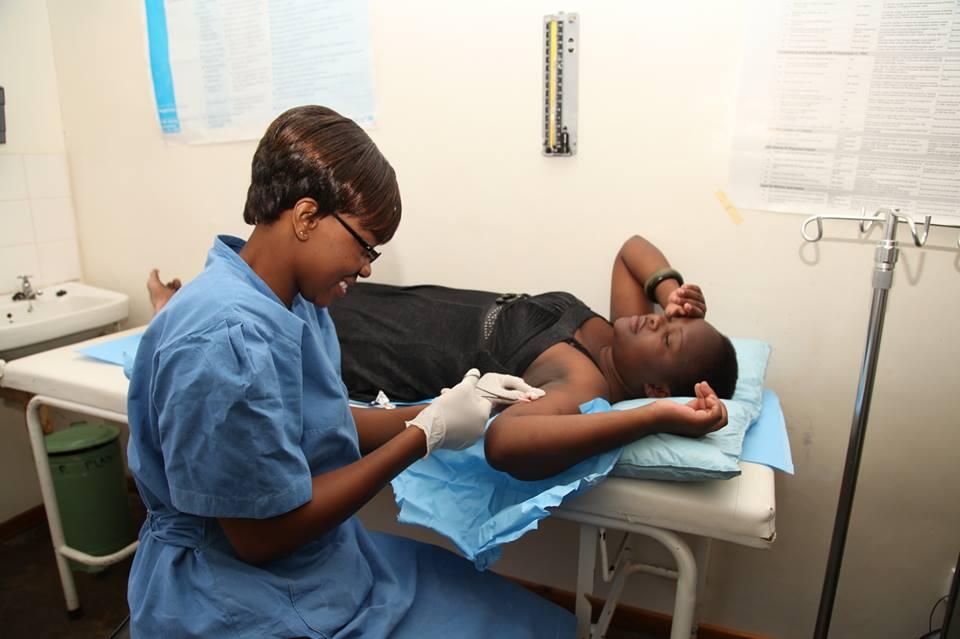Harare, Zimbabwe, 26 September, 2018 – On World Contraceptive Day the United Nations Population Fund (UNFPA) and the Government of Zimbabwe have called for greater investment in Family Planning to ensure access for all women and girls of reproductive age.
World Contraceptive Day is commemorated each year on 26 September as a day to galvanise for action for improved access and knowledge about Family Planning. The theme for this year’s commemorations is: It’s your life: it’s your responsibility
Although Zimbabwe has made huge progress in the provision of Family Planning for women and girls more efforts are required to ensure access for even those in the remotest parts of the country says UNFPA and partner, the Zimbabwe National Family Council (ZNFPC). Zimbabwe’s Contraceptive Prevalence rate (CPR), that is the proportion of women aged 15-49 using family planning is 67% today, an improvement from 59% in 2010. This is one of the highest on the continent but there remains unmet need among women and girls of reproductive age, the majority of them in rural settings and often young. Unmet need for family planning among married couples is 10% in urban areas and 11% in rural areas while unmet need for young people is 12.6%.
Zimbabwe National Family Council (ZNFPC) Executive Director Dr. Munyaradzi Murwira said that efforts should be doubled to reach young people, unmarried sexually active women and strengthen the availability of a variety of FP methods.
“The country’s high CPR is largely attributable to short term methods, in particular the Pill. There is still need to expand contraceptive choice with access to a large variety of contraceptive methods that work over a longer time such as implants,” said Dr Murwira. “We must therefore work hard to ensure that even women and girls in the remotest part of the country have access to family planning both short term and long acting.”
Family planning is essential to overcoming poverty, which worsens when individuals cannot choose the size of their family. There is overwhelming evidence suggesting that family planning can be a development strategy for improving health and wellbeing while reducing poverty and empowering women
“Family planning is human right which empowers women and girls and helps save lives. Pregnancy should be by choice and not by chance,” said Dr. Esther Muia, United Nations Population Fund (UNFPA) Country Representative. “Today, we still have areas with limited access to Family Planning information and services, particularly for young girls and for those in remote areas. This is of great concern particularly in the context of the high teenage pregnancies (1 in 3 girls below 18), which cut short these girls’ productive lives. We need to look closely at expanding contraceptive choice for all.”
Family Planning is a key pillar to ensure safe motherhood. Access to information and services enables women and men the voluntary ability to space births, benefiting the mothers’ and children’s health and the community as a whole. It also reduces the risk of death and disability associated with from pregnancy and childbirth that occur too early or too late in a woman’s life as is the situation in Zimbabwe.
“Women who have fewer risky births, healthier pregnancies and safer deliveries have lower risks of death and have improved overall health. These improvements produce economic benefits: greater investments in schooling, greater productivity, greater labour force participation and, eventually, increased income, savings, investment and asset accumulation,” said Dr Muia.
This year marks the 50th anniversary of the 1968 International Conference on Human Rights, where family planning was, for the first time, globally affirmed to be a human right. The proclamation states that: "Parents have a basic human right to determine freely and responsibly the number and spacing of their children." Family planning is therefore not about limiting couples but allowing couples the choice on when to have children, the number and how to space them.
For more information and media queries please contact
Martin Mukaronda, Assistant Director Marketing and Communication, ZNFPC: Tel 263 772 413036; Bertha Shoko, Communications Analyst--UNFPA: Tel: 263 772 782 299: shoko@unfpa.org


